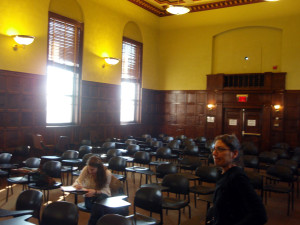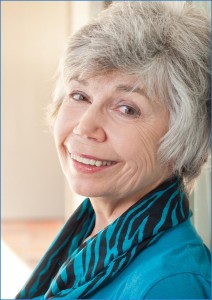6 February 2013
What’s Psychology Got to Do with NIMBY?: Exploring the Deeper Meanings of Community Resistance to Proposed Housing Density Increases
I spent several hours teaching and meeting with facultry at Tufts University during my month in Boston.
My hosts included Julian Aygeman, Weiping Wu, Penn Loh and Laurie Goldman PhD (pictured below), with whom I also taught a n evening class on community engagement and community visioning.
This was my first Boston lecture and I was thrilled to be speaking in the lecture hall with its beautiful architectural features.
It was winter outside, to be sure, as you can see from the white light streaming in the windows.
Little did we know what was to come with the Big Blizzard that arrived that weekend with twenty inches of snow!
In this lunchtime session, I returned to my “psychological” roots to explore the social and psychological dimensions of housing, to ask what’s missing in higher density housing in North America and Australia and why NIMBYism might even be warranted in some cases.
Offering my Homing Instinct model, I proposed that if we are to design community engagement processes to address delicate, sensitive psychological issues about our core territories, we are going to have to start by showing a lot more love, care and emotional intelligence than we have in the past.
Jane Munro
I began my presentation with a powerful poem, “Grief Notes and Animal Dreams”, by a dear friend of over 60 years, Canadian poet, Jane Munro.
See: https://janemunro.com/biography.html
Jane Munro
The poem is from a beautiful book by the same name.
See: https://www.amazon.com/Grief-Notes-Animal-Dreams-Munro/dp/0919626823
Jane’s father built a log house for his family in Vancouver and the fire that burned down the house killed Jane’s mother.
I read Jane’ poem because artists speak to us about what we often cannot express ourselves about significant relationships.
I offered Jane’s poem as an illustration of the passionate relationship we can have with our housing – exemplified by a poet’s words.
If you’d like to receive a copy of my PowerPoint to this colloquium, please email me, as it’s too large to put up here.
wendy@sarkissian.com.au



